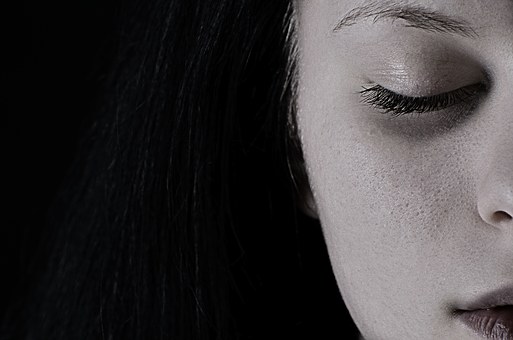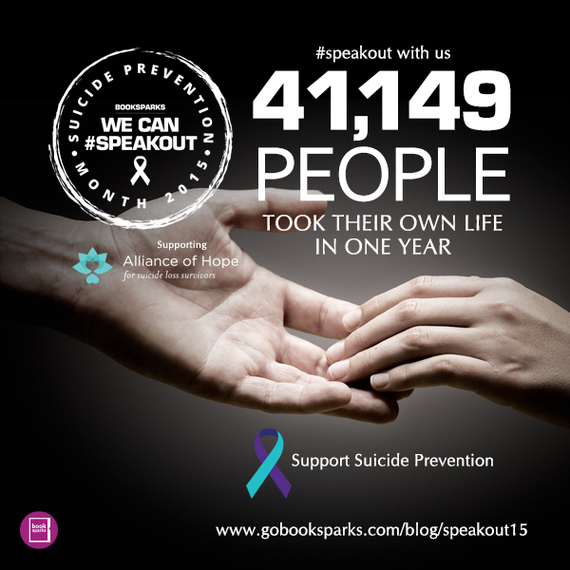BFRBs and Suicide

Online test
Find out the severity of your symptoms with this free online test
 On the 10th September we celebrated World Suicide Prevention Day. Founded in 2003 by the World Health Organization (WHO) and the International Association for Suicide Prevention, this day highlights the fact that every year more than 800,000 people commit suicide, and millions of others make a suicide attempt. It is vital to understand the causes behind suicide, and talk about it openly, because caring, open communication and social connectedness play a big role in helping to prevent suicide. Suicide of a friend or loved one can be devastating to those who are left behind as well. With that goal in mind, this article will address BFRBs (Body Focused Repetitive Behaviors) and suicide.
On the 10th September we celebrated World Suicide Prevention Day. Founded in 2003 by the World Health Organization (WHO) and the International Association for Suicide Prevention, this day highlights the fact that every year more than 800,000 people commit suicide, and millions of others make a suicide attempt. It is vital to understand the causes behind suicide, and talk about it openly, because caring, open communication and social connectedness play a big role in helping to prevent suicide. Suicide of a friend or loved one can be devastating to those who are left behind as well. With that goal in mind, this article will address BFRBs (Body Focused Repetitive Behaviors) and suicide.
Compulsive Skin Picking BFRB
Also known as excoriation disorder, skin-picking disorder, or dermatillomania, this mental disorder is defined by the repeated urge to pick at the skin, frequently causing tissue damage. It is related to trichotillomania, which is the compulsive pulling of hair, but skin picking is most frequently done by women, as opposed to hair pulling, which is spread evenly across genders. It has been suggested that BFRBs are a type of OCD (Obsessive Compulsive Disorder) since both disorders involve repeated behaviors showing diminished control, with the goal of generally decreasing anxiety. Other researchers suggest that people suffering from BFRBs share similarities with those suffering from substance abuse disorder. Both disorders share a compulsion to do the negative behavior despite knowing what harm it causes, a strong urge to perform the behavior before actually doing it, and an intense feeling of pleasure while doing the behavior, followed by a feeling of decreased anxiety.

Skin Picking and Suicide
There are few studies related to suicide and BFRBs, even though the topic is brought up by those suffering from the disease in support groups on Facebook and in private conversations. Researchers need to embrace the study of BFRBs and possible suicide in order to offer treatment. Several medications appear to have some success in treating excoriation disorder, and behavioral treatment such as cognitive behavioral therapy and habit reversal training have shown reductions in skin-picking behavior for those patients without psychological disabilities.
An interesting article discussing BFRBs and suicidal thought has recently been published by the Canadian BFRB Support Network. Sufferers shared thoughts like "Sometimes it feels like the only way out is suicide" and "As an adult I've attempted suicide. Sometimes it's too much". Opportunities for discussing suicidal thoughts should be given, because open discussion can benefit many people who struggle daily with BFRBs, and struggle alone. Online support groups can be very helpful in bringing suicidal thoughts out in the open, where other caring people can offer recommendations. The Derma Support Network gives skin pickers the opportunity to show pictures of themselves and discuss their particular habits, and provides a helpful section entitled Things to Do Instead of Picking.
Bullying and Shame of a Skin Picker
BFRBs usually manifest during adolescence, primarily about the time of puberty. Evidence suggests that people who develop a BFRB have a genetic predisposition for it. Because skin picking may cause scars, individuals will try very hard to hide their particular repetitive actions from others. They feel a great shame, and that feeling is exacerbated when they are discovered, or when bullies make fun of their scars and shame them publicly. It is crucial to be aware of this type of bullying in the schools and at home as well. People suffering from compulsive skin picking already feel immense shame and guilt over the behavior itself and embarrassment over the scars it often leaves behind. There is also often a link to anxiety and depression in those who have a BFRB. With co-occuring skin picking and depression, places the person at increased risk of suicide. It is therefore important that the person receives help as early as possible to address these issues.

Awareness is Key
BFRB awareness is crucial in the struggle for suicide prevention. Dermatillomania sufferers online shared some of the many reasons why awareness is needed:
- Effective treatments are available, and this should be common knowledge
- Peer support groups are essential so that patients can share their thoughts, on suicide as well as on anything else
- 1 to 3% of the world population has a BFRB. This is a large group of people who must be reached and treated
- Dermatillomania should be spoken about early, even in elementary school, so that a common reaction to skin picking is not one of disgust or shock
- Treatment for these conditions should be recognized as essential for health and well being, and should be covered by health insurances
- Suicide attempts are common in the BFRB community. Don't be afraid to ask someone close to you if they are having suicidal thoughts. There are support groups, doctors, teachers, counselors, and other family members who can help. Call the International Suicide Prevention hotline
One of the greatest reasons for suicide among BFRB patients is untreated depression. Depression can manifest itself after a serious accident. the death of a loved one, a breakup, separation, or divorce, chronic physical pain or intense emotional pain, physical abuse, being victimized (by assault, rape, or domestic violence), sexual abuse, verbal abuse, feeling trapped in a negative situation, feeling helpless, or feeling that the particular situation will never get any better. Those people contemplating suicide often feel taken advantage of, suffer from drug abuse or alcohol abuse, have the feeling that they aren't accepted by friends, family, or the society at large, have low self-esteem, and are frequently bullied.
Online test
Find out the severity of your symptoms with this free online test
Start your journey with SkinPick
Take control of your life and find freedom from skin picking through professional therapy and evidence-based behavioral techniques.
Start Now



